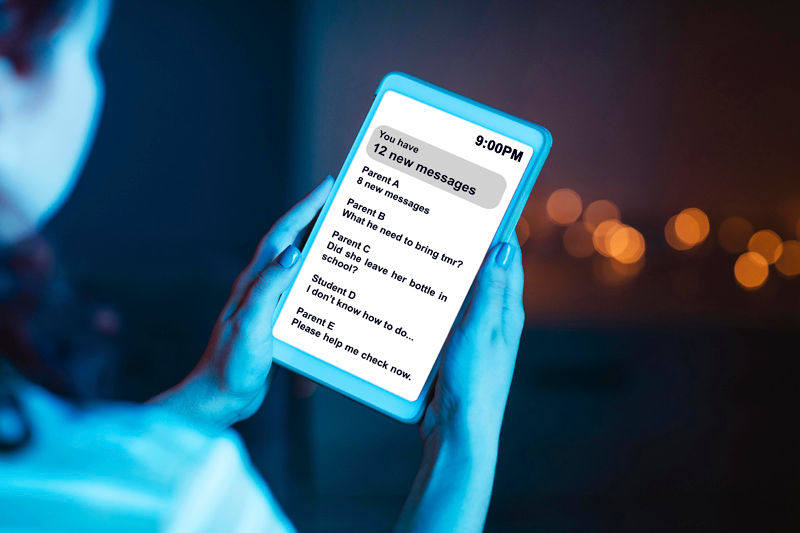Protecting Teachers' Personal Time: A Step Towards Better Work-Life Balance
- circular connection
- Sep 21, 2024
- 2 min read
Recent statements by Singapore's Education Minister Chan Chun Sing have highlighted a crucial aspect of uplifting teachers' work-life balance: teachers need not share personal contact numbers or respond to messages after school hours.

Image: Freepik
This acknowledgement by the ministry finally recognizes the importance of allowing teachers to maintain their personal time without the pressure of constant communication.
Many Redditors have weighed in on this and most have agreed that more needs to be done by schools and parents to enable teachers' rights to their personal time.
Protecting Teachers' Personal Time: Benefits of Limited After-Hours Communication

Image: Freepik
Work-Life Balance: Teachers put in a lot of unseen, extra time after working hours for many other administrative tasks, such as creating teaching plans, learning resources, evaluations and student assessments. Allowing teachers to disconnect after hours supports their mental health and well-being. This time off can reduce burnout and enhance overall job satisfaction.
Setting Boundaries: Establishing clear boundaries helps parents understand that teachers have personal lives beyond their professional roles. This clarity can lead to more respectful and productive communication.
Distinguishing School Emergencies from Non-Urgent Matters

Images: Freepik
Parents often perceive certain inquiries as urgent, but what qualifies as an emergency can vary. For instance, topics like homework, class projects, missing belongings, or school events, while important, typically don’t need immediate attention and can be addressed during school hours.
It is crucial for parents to differentiate between true emergencies—such as concerns about a child’s health or safety—and non-urgent matters. Issues like academic performance or social interactions, although valid, can be discussed during parent-teacher meetings or regular communication times within school hours. This distinction helps protect teachers' personal time while ensuring important matters are addressed appropriately.
Guide for Parents: Differentiating Between Emergency and Non-Emergency Inquiries
Emergency Inquiries | Non-Emergency Inquiries |
Health and Safety Concerns | Homework Questions |
Example: Child is injured or ill and needs immediate attention. | Example: Clarification on a homework assignment due next week. |
Immediate Threats | Upcoming Events |
Example: Child is being bullied or threatened at school. | Example: Inquiring about a school event scheduled for next month. |
Behavioral Crises | Social Concerns |
Example: Child is exhibiting severe emotional distress and needs urgent support. | Example: Asking about a child's friendships or social interactions. |
Attendance Issues | Academic Performance |
Example: Child is unable to attend school due to illness and needs to report it. | Example: Requesting feedback on a recent test or project. |
Severe Family Issues | Class Policies |
Example: Family emergency affecting the child's school attendance. | Example: Questions about the grading policy or classroom rules. |
By understanding the boundaries of urgent and non-urgent matters, we can create a more supportive environment for educators who deserve their personal time to decompress from work.






